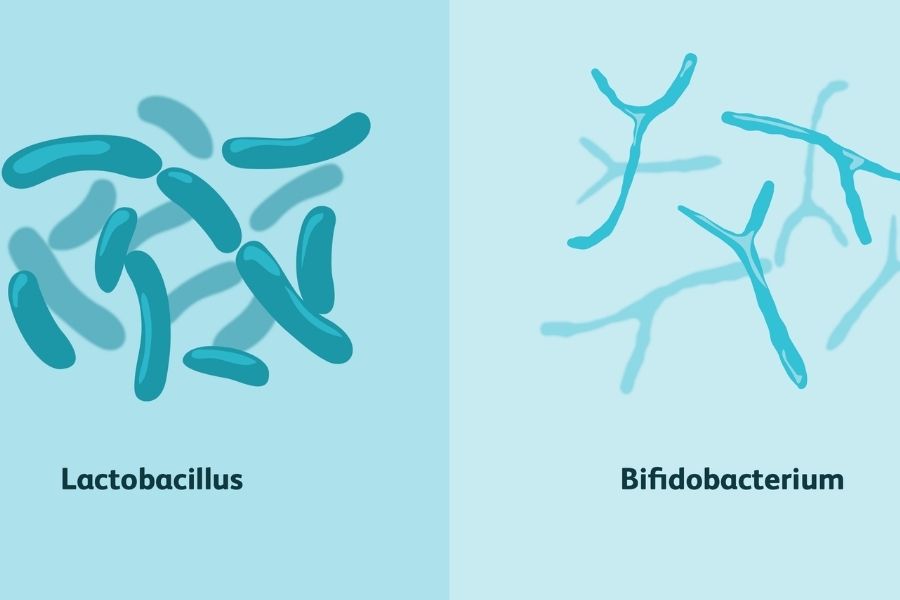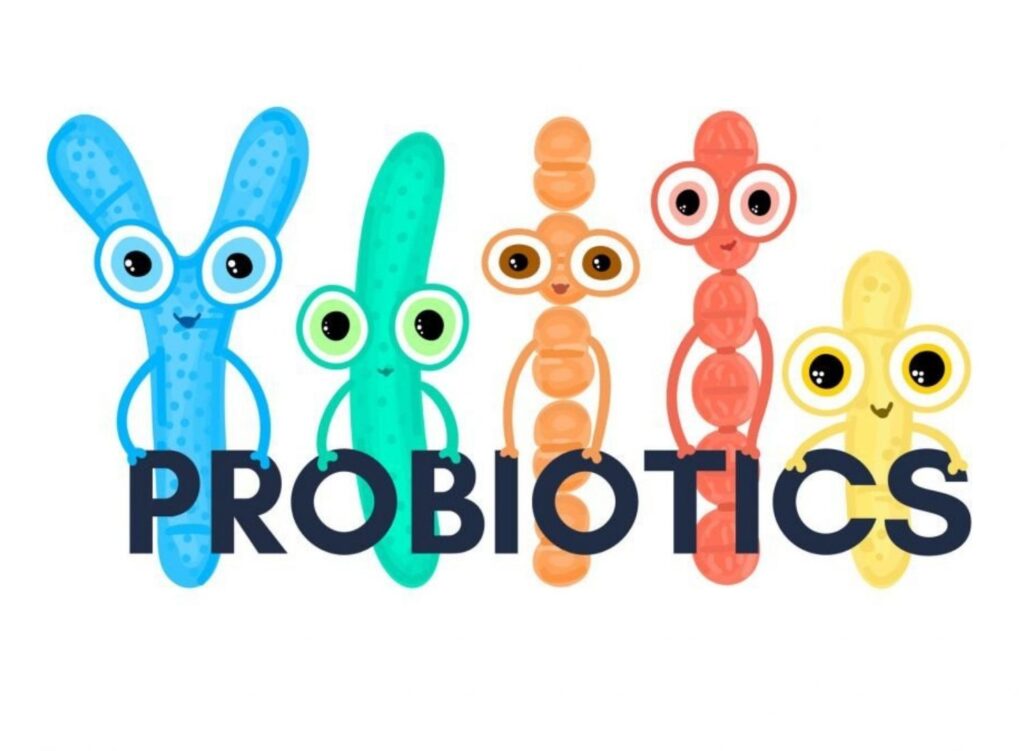The term ‘probiotic’ means “for life.” Probiotics are organisms contributing to the health and balance of the intestinal tract and are commonly mentioned as ‘friendly,’ ‘beneficial,’ or ‘good’ bacteria. We usually think that germ causes disease. But our body is filled with bacteria – ‘GOOD’ and ‘BAD.’ Probiotics are often called nearly as good bacteria because they help to take care of gut health effectively.
We all have examined the microbiome. The microbiome may be a diverse community of organisms in our body, like a big forest, which constantly works to stay healthy. Probiotics are the larger part of this forest. These microbiomes are divided into four parts, such as:
- Bacteria
- Virus
- Fungi
- Protozoa
The strains or species of probiotics play a pivotal role in keeping the body healthy. Let’s understand them and how they affect our bodies.
How Do Probiotics Work?

The concept of probiotics is in contrast to antibiotics. Antibiotics suppress or destroy bacteria through bad or good. Probiotics or good bacteria constantly add to our body to stay healthy and fit. Suppose we have an infection in our body like diarrhea or the other symptoms of irritable bowel syndrome. If an infection is there in our body, many bad bacteria increase, knocking our body out of balance. Then good bacteria work to fight against bad bacteria and check out to keep our body in balance.
Benefits Of Good Bacteria
- Help to create up our immune function and act as an anti-inflammatory
- Fight against bad bacteria and prevent infections
- Create vitamins for the body
- Help our body to digest food
- Protect the cells that line your gut to stop the bad bacteria that we may have consumed through unhealthy food entering our blood
- Break down and absorb the medications
- Affect the inflammatory process
Common Species Of Probiotics

The most commonly consumed probiotics are the strain of two species.
Bifidobacteria: These species of bacteria are usually utilized in food and supplements. They help –
- Maintain a healthy system
- Restrict the expansion of bad bacteria in the intestine, avoiding any infection
- Help to interrupt down the lactose into nutrients the body can use
Lactobacillus: These bacteria species produce an enzyme called lactase that helps break down lactose or milk sugar. These bacteria also produce lactic acid. Lactic acid plays a crucial role; it helps to regulate the expansion of bad bacteria. It also allows for muscle development and increases mineral absorption in our body.
Lactobacillus bacteria are readily available naturally in –
- Mouth
- Small intestine
- Vagina
Common Strains Of Probiotics

Each probiotic has a different effect on our body. We see probiotic strain name on food labels combined with their species names. For example, Bifidobacteria or Lactobacillus species are often abbreviated as B. or L. when combined with their strain like acidophilus. It provides you the probiotic L.acidophillius on food supplements.
Adding Healthy Probiotics To Our Daily Diet

Probiotics are safe to consume unless we have some major illness or any disease associated with the intestine. We will consume probiotics by simply adding dairy products that are natural probiotics. We will observe any changes in digestion and overall health. If there are no changes, we will choose a probiotic supplement as advised by a physician. Some easily available food choices for probiotics are:
- Yogurt
- Buttermilk
- Fermented cheese
- Cheddar
- Swiss
- Fermented vegetable products
Probiotics And Covid-19

A viral outbreak is mentioned as COVID-19. The viral agent is recognized as zoonotic beta coronavirus named severe acute respiratory syndrome coronavirus 2 (SARS-CoV-2). COVID-19 damages the body’s immune defense via “CYTOKINE STORM” of excessive inflammatory cytokines. Due to severe infection, immunity level falls enormously.
Some researchers suggest that improving the gut microbiome via probiotic supplementation and dietary supplementation could also be the strategy to fight and treat an infection for COVID 19. Intestinal flora strengthens the system and fights against inflammation. Thus, probiotic supplementation helps to spice up the recovery from the coronavirus by inhibiting the cytokine storm. Some research suggests that not all probiotic strains exert the same effects on the body.
The Bottom Line
Maintaining a healthy gut is about quite taking a probiotic supplement. Your daily diet and regular exercise are even as important as many lifestyle factors affect your gut bacteria. However, probiotic supplements may offer a good range of advantages with few side effects. As such, if you are curious about improving your gut health, they might be worth a try. Take the advice of your healthcare provider first to form sure you are trying the proper strains of probiotics within the right amounts and avoid any side effects.
Read Also: 11 Surprising Health Benefits Of Probiotics








1 thought on “Probiotics: The Friendly Bacteria”